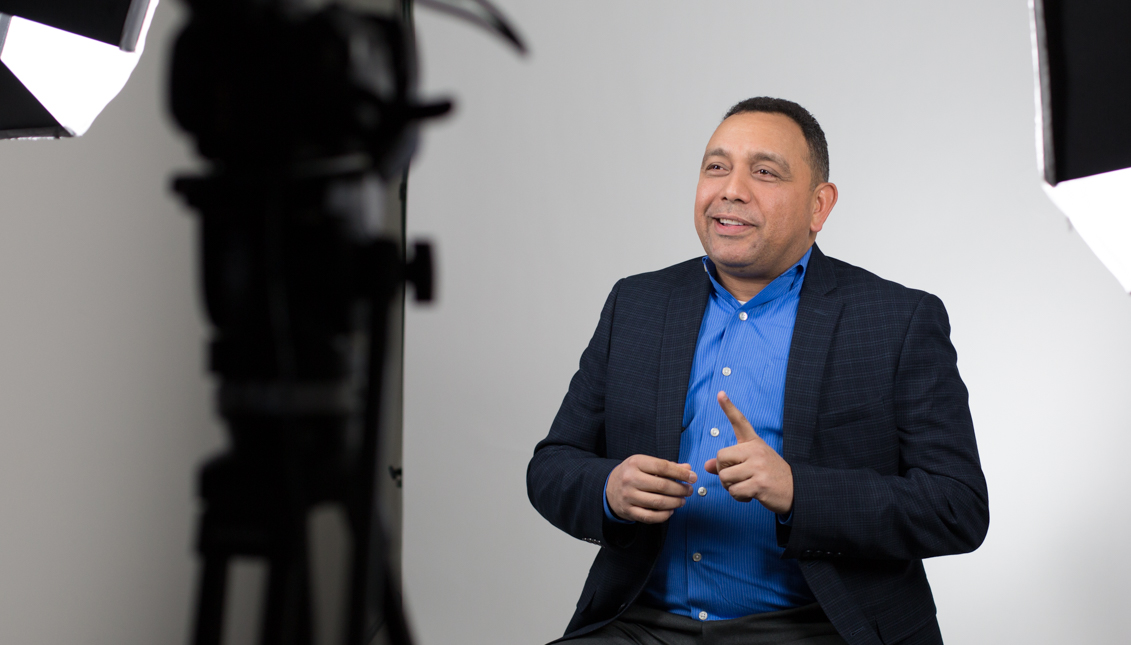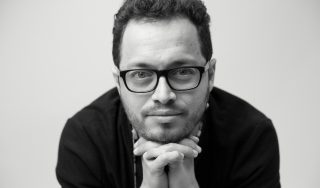
At the beginning, he didn’t like Philadelphia. Now, he loves it
A proud Venezuelan-American. This is how Emilio Buitrago defines himself — an American immigrant from head to toe who walks with his head held high, without a…
Emilio came to the U.S. with a student visa in 1996, while in his senior year of college. At the time he was finishing his engineering degree and working for CANTV, the most important telecommunications company in Venezuela.
During those years, the company was privatized by, among others, the U.S. company AT&T, which resulted in an influx of American professionals working in leading positions in the Venezuelan firm.
Emilio wanted to improve his English so he could work together with his American colleagues. He applied to be sent to the U.S. to study English, going first to Washington D.C. and then landing in Philadelphia.
Why did he end up staying? For the same reason that so many others stay: This is the land of opportunities.
Since then, Emilio has witnessed and participated in the changes Philadelphia has undergone in the past decade. He is the co-founder of Casa de Venezuela, an organization which in its first days was focused on promoting Venezuelan culture. Now, it is a refuge for the many Venezuelans that have immigrated due to the political, economic and social crisis in their country.
At the beginning it was rough. I was in my early 20’s, I never was away from my house for more than a week or two… I was washing dishes. I actually started in a restaurant as a waiter, [but] I got demoted and put as a bussman and was in charge of serving the water and cleaning the tables. I made pizzas, I cleaned schools and houses, I was doing telemarketing for a real estate agent. I did everything that an immigrant do when he first come to the U.S.
To be an American immigrant is [also] that I can celebrate two countries, I can celebrate during the Olympics ceremony when the U.S. comes out followed by Venezuela… that I can cheer and cry for the good and the bad things that happen to the two countries.
I had to admit that I hated Philadelphia when I first came here. In 1997 Philadelphia was a rough city, it was dark, it was dirty… and I got to see the changes in the last 20 years, and now Philadelphia is a top destination. I have seen that changes, I’ve been part of it and I totally love the city.
When did I feel like Philadelphia was my home? Probably when I went back to Venezuela. During the holidays, I usually get together with my friends to drink and talk… when you tell people that you are from Philadelphia, Pennsylvania, two things happen: first, they associate Philadelphia with the cream cheese, they also associate it with Rocky and Tom Hanks’ movie Philadelphia.
RELATED CONTENT
So, when I found myself explaining to my friends the attractions, the good things in Philadelphia, the restaurants, the universities, the hospitals… even to the point that I find myself explaining the different accents in the U.S. and how Philadelphians, instead of saying water, they say “wudder”... that’s how I found out that I had become Philadelphian.
As everybody knows, Philadelphia is a “sanctuary city”, immigrants are welcomed to the city. Philadelphia has a great immigrant community, not only Latinos, but Asians, Europeans…
[About] Latino immigrants, let’s talk about the buying power. The buying power of Latino immigrants is 1.3 trillion dollars and there is about 12 or 13 trillion in GDP (Gross Domestic Product), and that’s the power that we bring to the table.
I’d hope that I had two groups of people with me in the same room. First, the GOP, and second a group of Latino community leaders.
I’d turn to the GOP, I would point at Donald Trump -I wouldn't say anything to him- and look at the GOP and ask them: “Why are you allowing this guy to get away with this much?”
And then I would turn to the Latino leaders, to the guys that have the power to organize the Latino community and tell them “come on, people. It’s time to wake up; we represent a wonderful power. For me, as a Latino, as a citizen, as a voter, it is unacceptable that in 2016 there were 27 million Latino registered to vote but on 13 million came out to vote. Things would be different if we massively would have come out and vote.
So I would tell the Latino leaders and the Latino community in general, let’s work together, let’s get organized, it’s time to change the stereotype that we have...











LEAVE A COMMENT:
Join the discussion! Leave a comment.